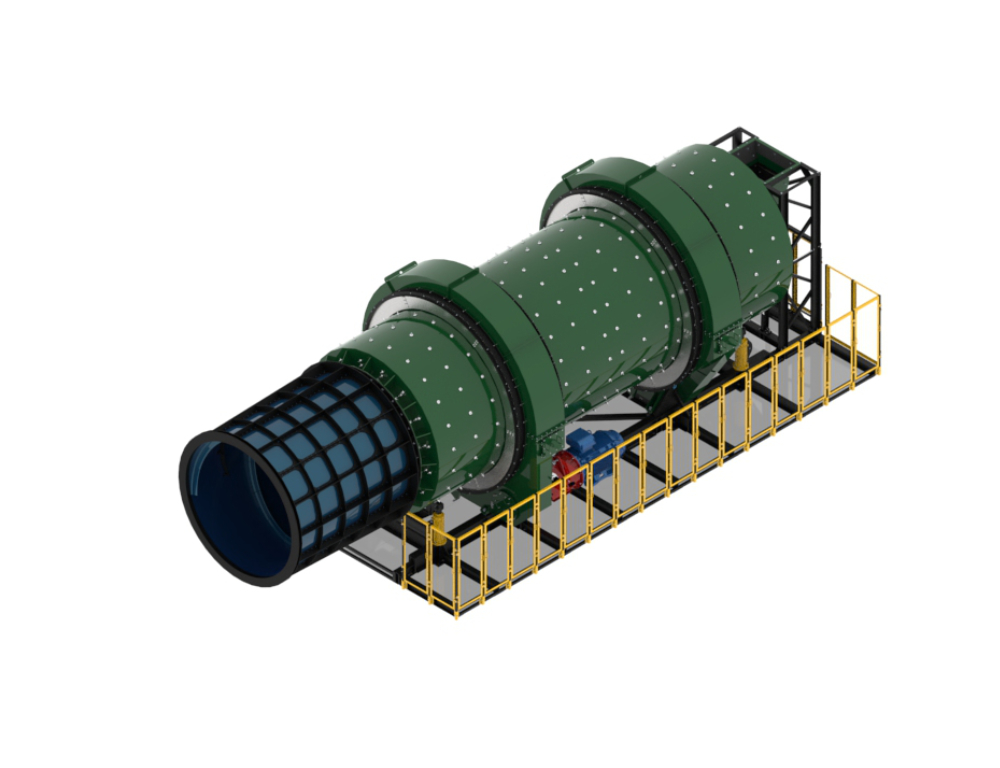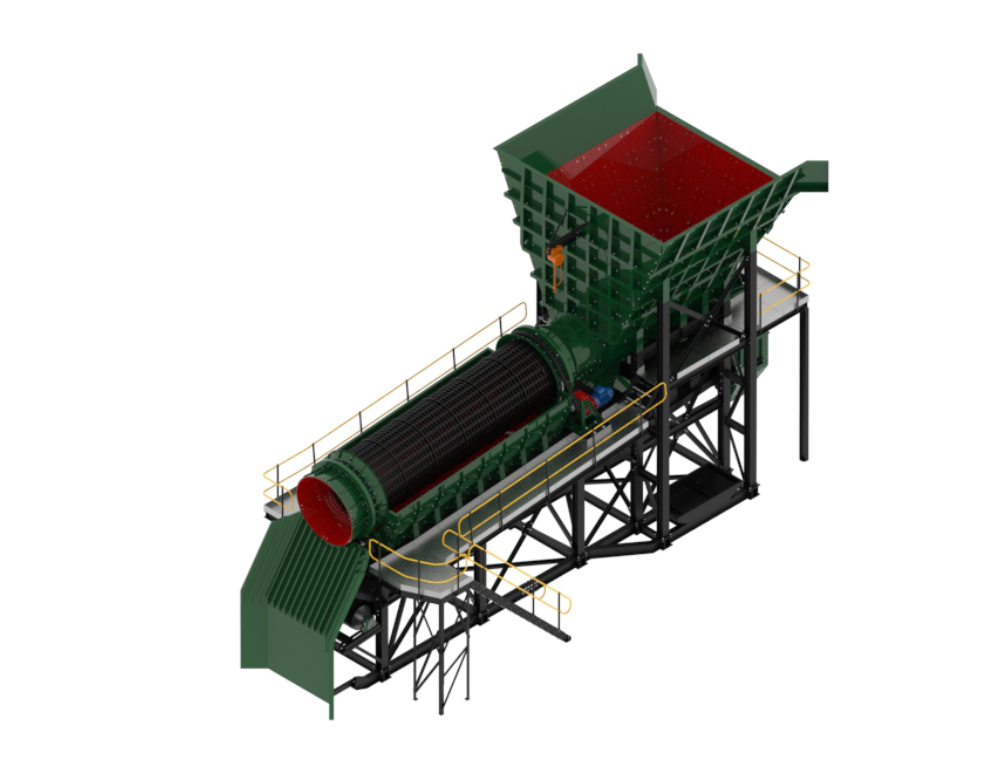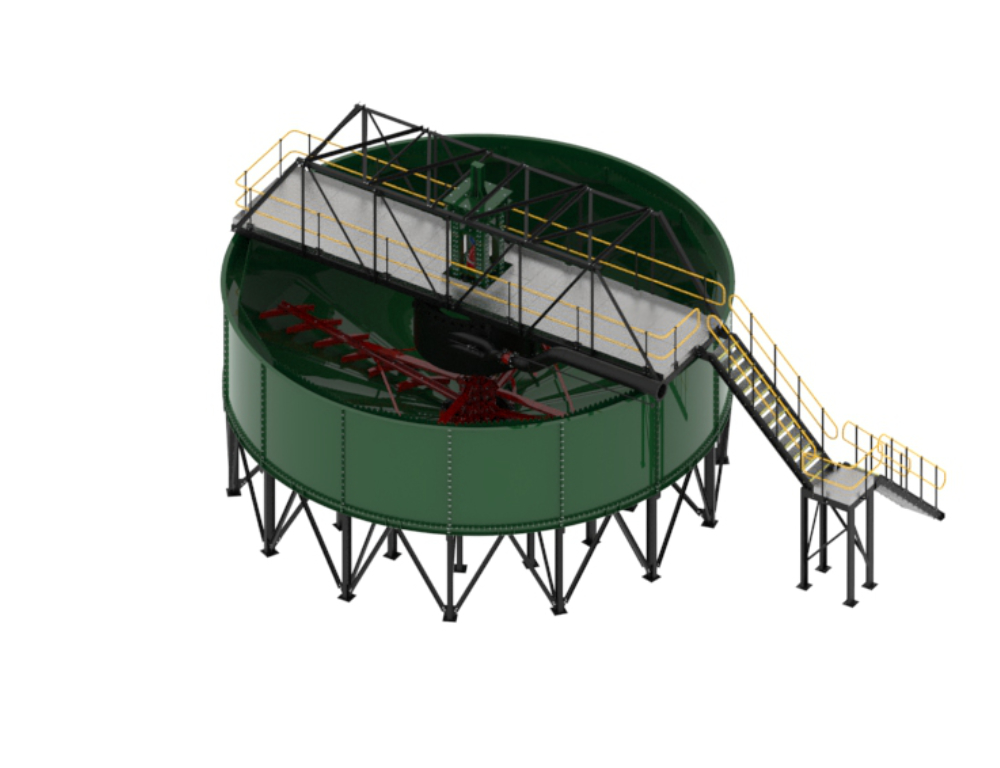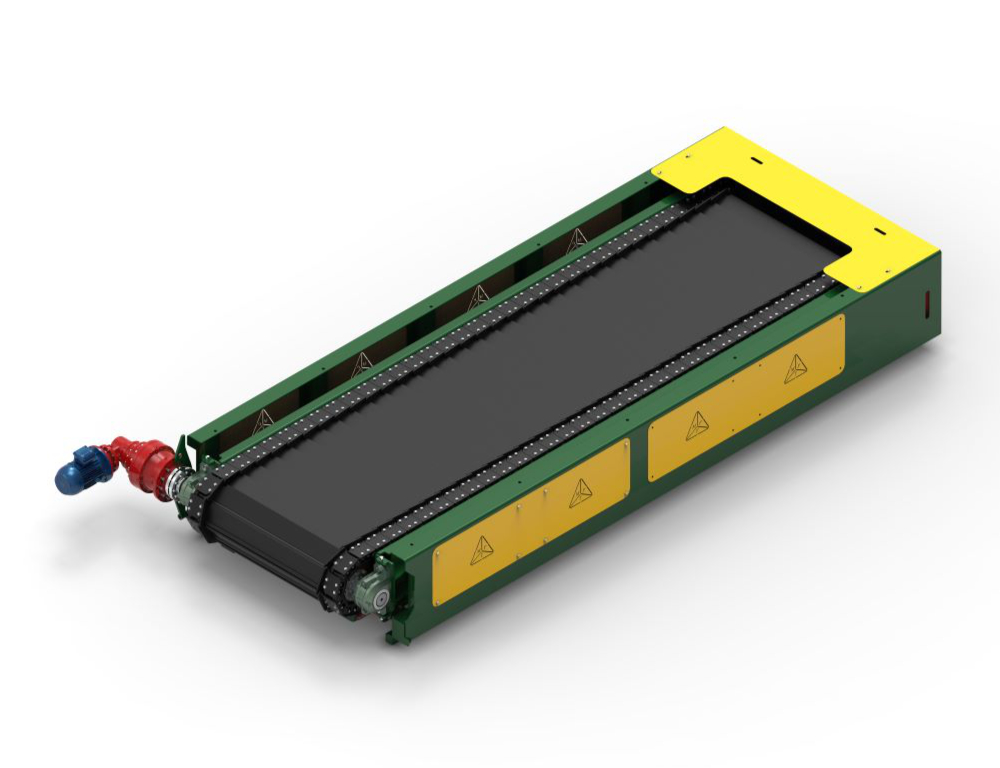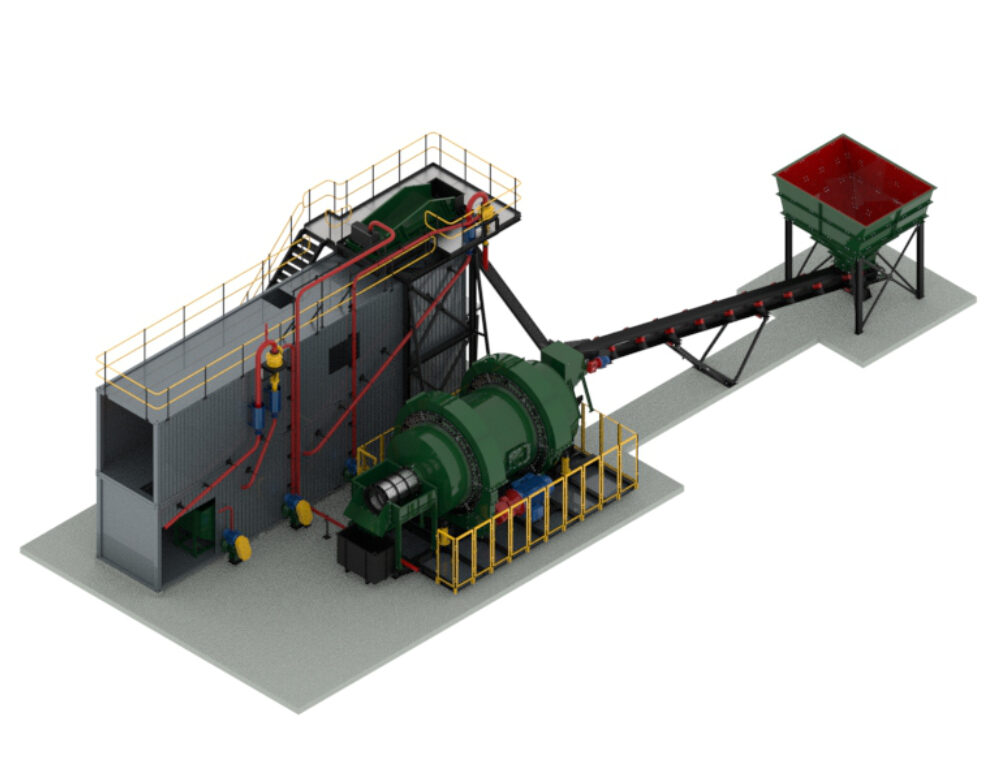The mining sector is experiencing a shift, propelled mainly by remarkable technological advancements. The mineral processing industry has also seen remarkable advancements with the emergence and wide adoption of modular pilot plants.
This article emphasises the advantages and role that pilot plants play within the mineral processing process, with a particular focus on the contributions of MechProTech in this space.
What are Pilot Plants?
A pilot plant is an adaptable, small-scale processing plant designed to be a simulation of the full-scale production process.
Unlike their traditional counterparts, these plants consist of separate units or modules that can be easily reconfigured or expanded, offering unparalleled flexibility and efficiency.
This modularity is particularly beneficial in the dynamic and often unpredictable field of mineral processing, where operational needs can shift rapidly.
The Significance of Pilot Plants in Mineral Processing
Pilot plants are instrumental in the mineral processing industry, serving as critical test beds for new technologies and processes before they are implemented on a larger scale. They offer a unique blend of practicality and precision, allowing researchers and engineers to study the intricacies of mineral processing techniques in a controlled yet realistic environment.
Successful pilot plant trials are a testament to a technology’s scalability and viability, often paving the way for significant advancements in the field.
Advantages of using pilot plants
Mineral processing pilot plants are essential for engineers who want to develop new methods, improve existing ones, or solve technical challenges associated with mineral extraction and processing.
1. Reduce risks and costs
Pilot plants are a valuable tool that can help reduce the risks and costs associated with scaling up a mineral processing operation. Testing the process on a smaller scale makes it possible to identify and resolve any issues that may arise, such as equipment failures, low mineral recovery rates, or poor product quality. This helps avoid wasting time, money, and resources on a large-scale operation that may not work as expected or meet desired specifications.
Pilot plants also allow for the optimisation of process parameters, such as grinding time, pH, reagent dosage, or separation by the particle size, to achieve the best performance and efficiency. This can help reduce operating costs and increase the profitability of the final product, such as gold, copper, or iron ore concentrates.
2. Enhance learning and innovation
Pilot plants offer a chance to experiment with different process variables, which can provide a deeper understanding of the underlying mechanisms, reactions, and phenomena governing mineral processing. This can enhance mineral processing engineers’ knowledge, skills, and creativity. Additionally, pilot plants provide a testing ground for new ideas, technologies, or materials that can potentially improve the efficiency or quality of mineral processing.
For example, mineral processing engineers can test new flotation reagents, grinding media, or equipment configurations that can enhance the recovery or purity of the minerals. Furthermore, pilot plants enable the scaling up of laboratory results to a commercial production level, which can help to optimise the process and minimise risks before full-scale implementation.
3. Validate models and data
Pilot plants are highly beneficial in mineral processing. They allow engineers to test and optimise mineral processing techniques on a smaller scale before committing to full-scale production, helping minimise the risks and costs of potential mistakes or inefficiencies. Additionally, pilot plants provide an opportunity to train and familiarise plant operators with the process and test and refine the equipment and procedures.
One of the most significant benefits of pilot plants in mineral processing is that they validate the models and data used to design and simulate the process. These models are essential tools for predicting and optimising the behaviour and outcomes of the process. However, they are based on assumptions, simplifications, and correlations that may not reflect the actual conditions or interactions of the process. By comparing the experimental results with the models and data, pilot plants can help improve their accuracy and reliability and identify and correct any errors or discrepancies.
Moreover, pilot plants generate valuable data that can be used to update or refine the models and data for future applications. This data is critical in improving the quality and confidence of the models and data and identifying and correcting any errors or discrepancies. Additionally, pilot plants can help determine the optimal operating conditions for the full-scale plant and identify any potential bottlenecks or inefficiencies in the following process. Overall, pilot plants play a pivotal role in the success of mineral processing operations, helping to ensure efficient, safe, and profitable production.
4. Demonstrate feasibility and performance
From a mineral processing perspective, pilot plants are particularly useful as they provide a practical way to test the feasibility and performance of a mineral extraction process on a smaller, more controlled scale. They allow you to evaluate the effectiveness of different processing techniques and optimise the process parameters before scaling up to total production.
Moreover, pilot plants will enable you to demonstrate the quality and characteristics of the extracted mineral, such as its grade, purity, or recovery. This can be helpful in convincing potential customers, investors, or regulators about the process’s commercial viability. Additionally, pilot plants enable you to comply with the regulatory requirements and standards that might apply to mineral extraction, such as environmental or safety criteria. This compliance can help you avoid legal or ethical issues and ensure a smooth transition to full-scale production.
Innovations in Modular Comminution Circuits by MechProTech
A critical component of mineral processing is comminution, which reduces solid materials from an average particle size to a smaller size by crushing, grinding, and other processes.
MechProTech’s modular comminution circuits offer solutions that significantly improve operational efficiency.
MechProTech’s designs focus on minimising energy consumption and maximising throughput, thereby optimising the overall processing operation.
1. Design Philosophy and Implementation
MechProTech has innovatively tailored its modular pilot plants to ensure all assembly and testing are completed in-house before shipment. This process minimises the potential for on-site issues, reducing clients’ risk and cost implications. The equipment’s modular nature allows for swift installation and operational commencement, pivotal in projects where time constraints are critical.
2. Diverse Range of Modular Pilot Plants
MechProTech’s range of pilot plants illustrates their versatile application across different minerals and geographic regions:
- Pilot Biox Thickeners Plant, South Africa: This plant is designed for bio-oxidation process testing, commonly used in gold recovery.
- 3-ton Gold and Gravity Recovery Plant, Tanzania: Focused on small-scale gold recovery using gravity separation.
- 50-ton and 80-ton Gold Alluvial Wash Plants in Mozambique and Angola: These plants include comprehensive alluvial processing with an emphasis on gold recovery and smelting facilities to finalise the product on-site.
- Various Milling and Crushing Operations: From a 400 kg tph mill and float containerised test pilot plant in Zimbabwe to more substantial setups like the 30 tph hard rock crushing, screening, milling, and gravity gold recovery plant in Guinea, these plants are tailored to process specific ore types and achieve targeted recovery rates.
- Specialised Test and Classification Plants include the 200 kg Milling Test Rig for Anglo American and several small to medium-scale scrubbing, screening, and classification plants in locations like Gabon and South Africa.
3. Titan Mill and Modular Comminution Circuits
A key component of MechProTech’s offering is the Titan Mill, a robust piece of equipment that forms the core of many modular comminution circuits. These circuits are designed to handle the critical task of ore size reduction, enhancing mineral liberation for better recovery rates.
The package typically includes:
- Skid Mounted Ball Mill & Drive train
- Mill lubrication station
- Comprehensive mill feeding and discharge systems
- Supporting structures and hardware
- Control systems to optimise processing efficiency
4. Modular Scrubbing Circuits
Modular scrubbing circuits are crucial for effectively washing and preliminary processing coarse materials.
MechProTech designs these circuits to include:
- MPT titan scrubber
- Comprehensive feeding and conveying systems
- Support structures, discharge systems, and hydraulic setups for operational efficiency
- Integrated control systems housed within easily transportable containers
5. Innovative Solutions for Specific Needs
Beyond standard setups, MechProTech also provides tailored solutions like the atmospheric gold eluting plant and specialised paint batching plants for specific industry needs. These solutions underscore MechProTech’s ability to adapt and innovate according to unique client requirements.
The Future of Mineral Processing with Modular Pilot Plants
The mineral processing industry is making commendable progress towards sustainability and efficiency, with modular pilot plants as a crucial enabler of this evolution. These systems offer remarkable flexibility and scalability, making them an ideal solution for addressing the challenges of tomorrow’s mineral processing industry.
As researchers continue developing more sophisticated modular systems, they are expected to enhance their efficiency and further reduce their environmental impact.
Pilot Plants and Circuits at MechProTech
Incorporating modular pilot plants into the mineral processing workflow is crucial for achieving efficiency, flexibility, and sustainability in the industry.
MechProTech offers innovative process testing solutions and contributions.
If you’re looking for innovative solutions to address the mineral processing industry’s complex challenges, visit MechProTech. From modular pilot plants to the other range of mineral processing equipment we offer, we have the solutions to help you achieve your goals.
Don’t wait – take the first step.

